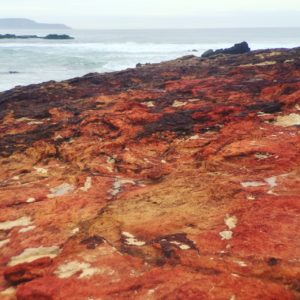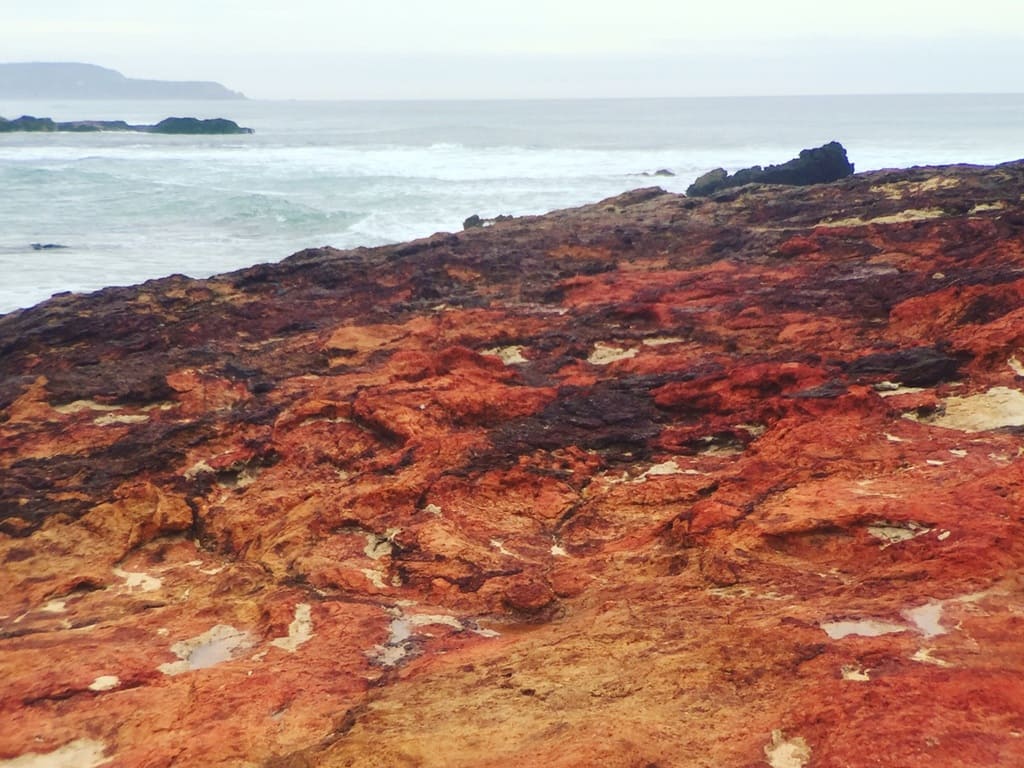Unpublished manuscript for those who might be interested. Cite as: DeSouza, R. (2016, July 16). Using forum theatre to facilitate reflection and culturally safe practice in nursing [Web log post]. Retrieved from: http://ruthdesouza.dreamhosters.com/2016/07/16/using-forum-theatre-for-reflective-practice/
High quality communication is central to nursing practice and to nurse education. The quality of interaction between service users/patients and inter-professional teams has a profound impact on perception of quality of care and positive outcomes. Creating spaces where reflective practice is encouraged allows students to be curious, experiment safely, make mistakes and try new ways of doing things. Donald Schon (1987) likens the world of professional practice to terrain made up of high hard ground overlooking a swamp. Applying this metaphor in Nursing, Street (1991) contends that some clinical problems can be resolved through theory and technique (on hard ground), while messy, confusing problems in swampy ground don’t have simple solutions but their resolution is critical to practice.

Australian society has an Indigenous foundation and is becoming increasingly multicultural.In Victoria 26.2 percent of Victorians and 24.6 per cent of Australians were born overseas, compared with New Zealand (22.4 per cent), Canada (21.3 per cent), United States (13.5 per cent) and The United Kingdom (10.4 per cent). Australia’s multicultural policy allows those who call Australia home the right to practice and share in their cultural traditions and languages within the law and free from discrimination (Australia Government, 2011, p. 5). Yet, research highlights disparities in the provision of health care to Culturally and Linguistically Diverse (CALD) groups and health services are not always able to ensure the delivery of culturally safe practice within their organisations (Johnstone & Kanitsaki, 2008).
An important aspect of cultural safety is the recognition that the health care system has its own culture. In Australia, this culture is premised on a western scientific worldview. Registered nurses (RNs) have a responsibility to provide culturally responsive health care that is high quality, safe, equitable and meets the standards expected of the profession such as taking on a leadership role, being advocates and engaging in lifelong learning. RNs who practice with cultural responsiveness are able to ‘respond to the healthcare issues of diverse communities’ (Victorian Department of Health [DoH], 2009, p. 4), and are respectful of the health beliefs and practices, values, culture and linguistic needs of the individual, populations and communities (DoH, 2009, p. 12).
Culturally competent nursing requires practitioners to provide individualised care and consider their own values and beliefs impact on care provision. Critical reflection can assist nurses to work in the swampy ground of linguistic and cultural diversity. Reflection involves learning from experience: not simply thinking back over an event, but developing a conscious and systematic practice of thinking about experience in order to learn and change future behaviour. Critical reflection involves challenging the nurse’s understanding of themselves, their attitudes and behaviours in order to bring their views of practice and the world closer to the complex reality of care. This kind of process facilitates clinical reasoning, which is the thinking and decision-making toward undertaking the best-judged action, enhancing client care and improve practitioner capability and resilience.
Didactic approaches impart knowledge and provide students with declarative knowledge but don’t always provide the opportunity to practice communication techniques or to explore in depth the attitudes and behaviours that influence their own knowledge. Drama and theatre are increasingly being used to create dynamic simulated learning environments where students can try out different communication techniques in a safe setting where there are multiple ways of communicating. A problem based learning focus allows students to reflect on their own experiences and to arrive at their own solutions, promoting deep learning as students use their own experiences and knowledge to problem solve.
In 2015 I developed and trialed a unit for students at all three Monash School of Nursing and Midwifery campuses in their third year. The aim of the unit was to provide students with resources to understand their own culture, the culture of healthcare and the historical and social issues that contribute to differential health outcomes for particular groups in order to discern how to contribute to providing culturally safe care for all Australians. The unit examined how social determinants of health such as class, gender, race, sexual orientation, gender identity; education, economic status and culture affect health and illness. Students were invited to consider how politics, economics, the social-cultural environment and other contextual factors impacted on Aboriginal and Torres Strait Islander and Culturally and Linguistically Diverse (CALD) communities. Students were asked to consider how policy, the planning, organisation and delivery of health and healthcare shaped health care delivery.
The unit was primarily delivered online but a special workshop was offered using Forum theatre developed by Augusto Boal in partnership with two experienced practitioners Azja Kulpińska and Tania Cañas. Forum theatre is focused on promoting dialogue between actors and audience members, it promotes transformation for social justice in the broader world and differs from traditional theatre which involves monologue. Simulated practices like Forum theatre allow students to address topics from practice within an educational setting, where they can safely develop self-awareness and knowledge to make sense of the difficult personal and professional issues encountered in complex health care environments. This is particularly important when it comes to inter-cultural issues and power relations. Such experiential techniques can help students to gain emotional competence, which in turn assists them to communicate effectively in a range of situations.
Students were invited to identify a professional situation relating to culture and health that was challenging and asked to critically reflect on the event/incident focusing on the concerns they encountered in relation to the care of the person. Through the forum theatre process they were asked to consider alternative understandings of the incident, and critically evaluate the implications of these understandings for how more effective nursing care could have been provided. Through the workshop it was hoped that students could then review the experience in depth and undertake a process of critical reflection in a written assessment by reconstructing the experience beyond the personal. They were encouraged to examine the historical and social factors that structure a situation and to start to theorise the causes and consequences of their actions. They were encouraged to use references such as research, policy documents or theory to support their analysis and identify an overarching issue, or key aspect of the experience that affected it profoundly. Concluding with the key learnings through the reflective process, the main factors affecting the situation, and how the incident/event could have been more culturally safe/competent. Students were asked to develop an action plan to map alternative approaches should this or a similar situation arise in the future.
Forum theatre has been used in nursing and health education to facilitate deeper and more critical reflective thinking, stimulate discussion and exploratory debate among student groups. It is used to facilitate high quality communication skills, critical reflective practice, emotional intelligence and empathy and appeals to a range of learning styles. Being able to engage in interactive workshops allows students to engage in complex issues increasing self-awareness using techniques include physical exercises and improvisations.
My grateful thanks to two Forum Theatre practitioners who led this work with me:
Azja Kulpińska is a community cultural development worker, educator and Theatre of the Oppressed practitioner and has delivered workshops both in Australia and internationally. She has been a supporter of RISE: Refugees, Survivors and Ex-Detainees and for the last 3 years has been co-facilitating a Forum Theatre project – a collaboration between RISE and Melbourne Polytechnic that explores challenging narratives around migration, settlement and systems of oppression. She is also a youth worker facilitating a support group for young queer people in rural areas.
Tania Cañas is a Melbourne-based arts professional with experience in performance, facilitation, cultural development and research. Tania is a PhD candidate at the Centre for Cultural Partnerships, VCA. She also sits on the International PTO Academic Journal.
She has presented at conferences both nationally and internationally, as well as facilitated Theatre of the Oppressed workshops at universities, within prisons and youth groups-in in Australian, Northern Ireland, The Solomon Islands, The United States and most recently South Africa. For the last 2.5 years has been working with RISE and Melbourne Polytechnic to develop a Forum Theatre program with students who are recent migrants, refugees and asylum seekers.
References
- Australian Government. (2011). The People of Australia: Australia’s Multicultural Policy, Retrieved from https://www.dss.gov.au/sites/default/files/documents/12_2013/people-of-australia-multicultural-policy-booklet.pdf
- Boud, D., Keogh, R. and Walker, D. 1985. Reflection: Turning experience into learning. London: Kogan Page.
- Gibbs, G. 1988. Learning by doing: A guide to teaching and learning methods. Oxford: Oxford Further Education Unit.
- Johns, C. 1998b. Illuminating the transformative potential of guided reflection. In Transforming Nursing Through Reflective Practice (eds). C. Johns and D. Freshwater. Oxford: Blackwell Science. 78-90.
- Johnstone, MJ. & Kanitsaki, O. (2008). The politics of resistance to workplace cultural diversity education for health service providers: an Australian study. Race Ethnicity and Education 11(2) 133-134
- McClimens, A., & Scott, R. (2007). Lights, camera, education! The potentials of forum theatre in a learning disability nursing program. Nurse Education Today, 27(3), 203-9. doi:10.1016/j.nedt.2006.04.009
- Middlewick, Y., Kettle, T. J., & Wilson, J. J. (2012). Curtains up! Using forum theatre to rehearse the art of communication in healthcare education. Nurse Education in Practice, 12(3), 139-42. doi:10.1016/j.nepr.2011.10.010
- Nursing and Midwifery Board of Australia (2006). National competency standards for the registered nurse, viewed 16 February 2014: www.nursingmidwiferyboard.gov.au.
- Nursing and Midwifery Board of Australia (2008). Code of professional conduct for nurses in Australia, Nursing and Midwifery Board of Australia, Canberra.
- Schön, D.A. 1987. Educating the Reflective Practitioner. San Francisco: Jossey Bass.
- Street, A. 1990. Nursing Practice: High Hard Ground, Messy Swamps, and the Pathways in Between. Geelong: Deakin University Press.
- Turner, L. (2005). From the local to the global: bioethics and the concept of culture. Journal of Medicine and Philosopy. 30:305-320 DOI: 10.1080/03605310590960193
- Victorian Department of Health. (2009). Cultural responsiveness framework Guidelines for Victorian health services, Retrieved from http://www.health.vic.gov.au/__data/assets/pdf_file/0008/381068/cultural_responsiveness.pdf
- Wasylko, Y., & Stickley, T. (2003). Theatre and pedagogy: Using drama in mental health nurse education. Nurse Education Today, 23(6), 443-448. doi:10.1016/s0260-6917(03)00046-7
- Also see DeSouza, R (2015). Communication central to Nursing Practice. Transforming the Nations Healthcare 2015, Australia’s Healthcare News.
